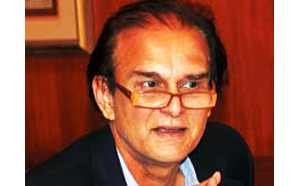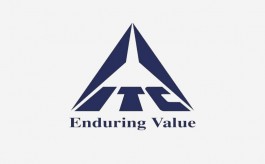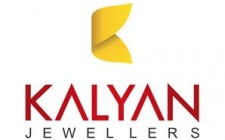The man who changed the game at Marico
By Dinesh Jain | Vjmedia Works | April 11, 2014
The man behind one of the handful of homegrown FMCG majors, Harsh Mariwala, makes way for professionals to take the company up the value chain
 It is business as usual when you walk into Marico's office in Kalina, Mumbai. Executives can be found hard at work at their desks and everything appears to be in order. The credit for this peace, in spite of the high-profile change at the top, goes to Marico's 63-year-old chairman, Harsh Mariwala. Amongst the handful of Indian FMCG (fast-moving consumer goods) makers who have dared to take on multinational corporations, Mariwala stepped down last month as the managing director of the company he built from scratch to make way for a new leader, Saugata Gupta. Of course, Gupta is no stranger to Marico - he has worked 10 years in the company in various leadership positions. In hindsight, it is clear that Mariwala was grooming him as his successor.
It is business as usual when you walk into Marico's office in Kalina, Mumbai. Executives can be found hard at work at their desks and everything appears to be in order. The credit for this peace, in spite of the high-profile change at the top, goes to Marico's 63-year-old chairman, Harsh Mariwala. Amongst the handful of Indian FMCG (fast-moving consumer goods) makers who have dared to take on multinational corporations, Mariwala stepped down last month as the managing director of the company he built from scratch to make way for a new leader, Saugata Gupta. Of course, Gupta is no stranger to Marico - he has worked 10 years in the company in various leadership positions. In hindsight, it is clear that Mariwala was grooming him as his successor.
Mariwala is nonchalant about it. "Gupta was running the company's
operations for a few years and this was a natural progression for him. I don't
think there is any surprise with his elevation," says he. "I will be
associated with the company as executive director. Managing stakeholders'
interest will be my responsibility, but day-to-day operations will be looked
after by Gupta."
At a time when Indian promoters do not hesitate to induct their children
straight into the corner office and even the boardroom, Mariwala's clear
succession plan for Marico, in which his children Rajvi and Rishabh do not
feature (at least for the time being), is noteworthy. Rajvi and Rishabh were
involved with Marico a few years ago, but opted to move on to do their own
things.
From edible oil to hair oil
Unlike his kids, Mariwala was inducted into the family business - Bombay Oil
Company, which makes edible oils - straightaway after graduating in commerce
from Bombay University in 1971. But it took him little time to realise that the
future was in brands, not commodities. Thus, in 1975, he started the branded
products division of the company. Marico happened as recently as 1990. In
earlier interviews, Mariwala has said that he set up a new company because a
serious thrust in FMCG required a whole new team and a whole new culture, not
burdened by the legacy of the commodity business.
In 1998, Mariwala engaged the services of Shombit Sengupta's Shining Strategic
Design Company to give Marico a new brand identity. Sengupta continued his
association with Marico for many more years to come, helping it, among other
things, design convenient packages for its various products. Along the way,
Mariwala built brands like Parachute, Saffola and Hair & Care and acquired
some like Nihar, Setwet, Zatak and Livon. Of these, Saffola, with its strong
wellness equity, has proved to be the most extendable: from edible oil, it has
stretched into salt, wheat flour additive, rice, snack food and oatmeal. When
he had joined Bombay Oil Company, it clocked Rs 75 lakh in turnover. Today, the
scale is vastly different. Marico is expected to close 2013-14 with a turnover
in excess of Rs 4,700-crore.
Now, as the chairman of the Marico board Mariwala will be involved with the
long-term strategy and vision of the company. He is clear about his
expectations from Gupta. "Driving growth is the key agenda for him. In the
last few years, we have stepped into the hair colour, body lotions and savoury
oats. His task will be to drive growth in these areas. About 10-15 per cent of
our revenues come from value-added products. I would like this number to go up
substantially," he says. Persons in the know say that Mariwala expects
revenues from value-added products to double in the next few years.
For this, Marico is putting in place specialised teams across geographies (the
company has operations in over 25 countries) which the management can turn to
for learning and expertise. These "centres of excellence" will act as
a focal point for transferring technology, product knowhow et cetera to other
markets. Gupta elaborates a little more. "We are largely into hair
nourishment and grooming internationally, which allows us to cross-pollinate
and align our portfolios across geographies."
This will be critical as Marico, known all these years as a hair oil and edible
oil company, moves into its next phase of growth led by personal care products
such as Livon, Setwet and Zatak, brands acquired from British consumer goods
maker Reckitt Benckiser in a Rs 500-crore-deal. Hair serum Livon, thus, was
recently extended into hair colour. Gupta says that there are a number of other
areas where Livon can be taken, given the growth the hair grooming market is
seeing in India. The same goes for Setwet, a male grooming product, where the
possibilities of brand extensions are enormous, say experts. Marico has already
taken Setwet to markets such as Bangladesh, where it has positioned the product
as a youth-based franchise.
Going won't be easy
However, some sector experts say the going won't be easy for Marico. In hair
care, Marico's biggest success has been hair oil (Parachute and Hair &
Care). One reason is that multinationals have chosen to stay away from this
segment because it's not a part of their global product plan - hair oil is a
largely south-Asian phenomenon. But with new grooming products, Marico has
walked into multinational territory. The challenges ahead will be serious.
Also, not all brand extensions have worked, including those of its core brands,
Saffola and Parachute, which cumulatively give the company about 60 per cent of
its revenues: Saffola snacks and Parachute hot oils bombed. However, products
such as body lotions under Parachute have done well for the company.
Marico has no choice but to move up the value chain. With rising disposable
incomes, consumers want new products. If it doesn't do these products, it runs
the danger of getting an old fuddy-duddy image. Value-added hair oils already
give Marico about 17-18 per cent of its revenues, analysts say. Marico may want
to increase this number as it attempts to reduce its dependence on the basic
coconut oil, prone to commodity price fluctuations and intense competition. While
the pace of new launches has come down in the last few years, the company on an
average does come out with at least two or three key products which are
launched after careful test-marketing.
The same is true in the foods segment also. Thus, Saffola is being positioned
as a breakfast product after its foray into oats. Again the strategy is to do
away with the brand's excessive dependence on edible oil, which has in the last
few years seen intense competition from both local and international majors
such as Adani Wilmar, Ruchi Soya and Cargill. Abneesh Roy, associate director
(research), institutional equities, Edelweiss, explains: "The first phase
of Marico saw it creating successful brands in categories such as hair oils and
edible oils, which were commodity-led businesses. The next phase is really
about how it can take this conversion or value-addition to the next level.
That's why it is identifying newer areas where it can step into with its
existing portfolio of brands."
Will that mean that Marico may not consider acquisitions for some time now?
While both Mariwala and Gupta say that these are not completely out of their
consideration, experts say that Marico will keep in mind the need to add value
while making acquisitions in the days to come. "We are always looking at
new growth avenues. Categories are determined based on potential and whether it
fits with our brand philosophy," says Mariwala. Kaya, the services
business of Marico, has already been demerged, and if company observers are to
be believed, Mariwala may even consider inducting a strategic investor into the
business to galvanise operations.
The social cause
In the last couple of years, Mariwala has been busy incubating businesses in
his personal capacity, working with an expert team that helps identify
opportunities where he can invest. He had last year told Business Standard that
his nonprofit venture called Ascent (Accelerating Scaling up of Enterprises)
would create pools of small businesses who could gain from each other's
experiences. Experts, some of them drawn from Marico, talk to each group and
help them sort out their problems. Once a quarter, all the enterprises come
together and listen to a leading guest speaker. His target is to help no fewer
than 10,000 enterprises this way. Mariwala's Marico Innovation Foundation,
another initiative that he champions, annually rewards business and social
ventures whose ideas have made a difference. The Marico Innovation Awards have
now become a must-attend event every year.
He may no longer be the chief executive of his company, but don't expect
Mariwala to sit idle.








